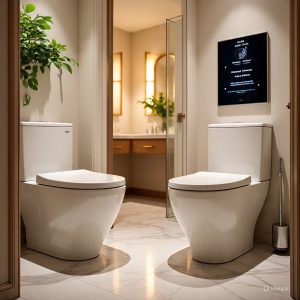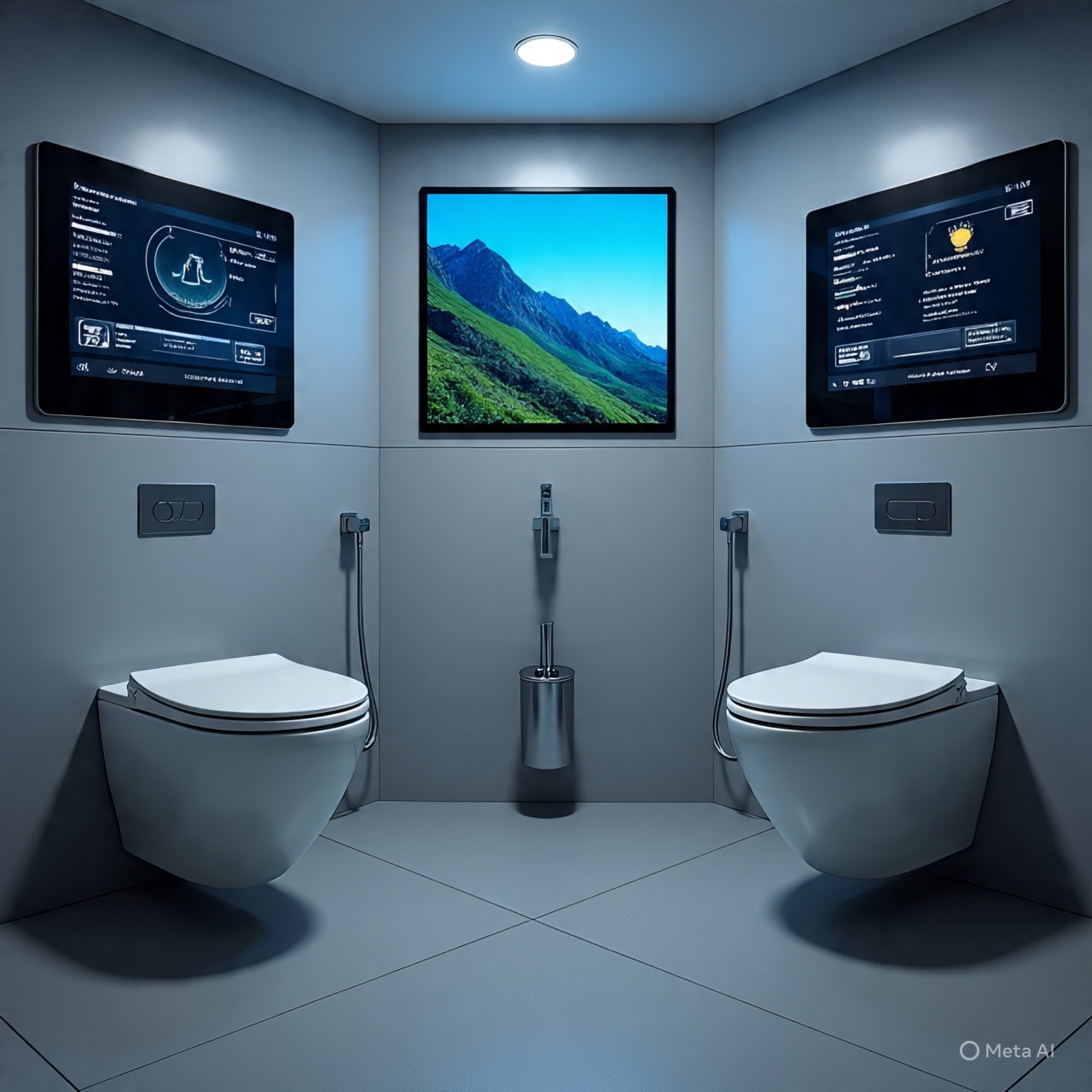By Eugene Upah
Read Time: 2 minutes
Japan is leading a revolutionary wave in health technology with the introduction of smart toilets capable of analyzing user health through waste. These cutting-edge fixtures integrate sophisticated sensors and artificial intelligence to detect crucial health indicators in urine and stool, including hydration levels, glucose, pH balance and even physical characteristics like stool color and hardness. This innovation marks a significant stride toward personalized and preventative healthcare, seamlessly integrating wellness monitoring into daily routines.
Leading Japanese toilet manufacturer Toto announced on August 1 that it will begin selling high-end “Neorest” series toilets equipped with these advanced health monitoring functions for residential use. These models will feature an LED light to illuminate stool and sensors to measure its length, contour, surface shape, color (categorized into ochre, brown, and dark brown), hardness (seven levels including liquid and semi-solid) and volume. Up to six users can conveniently access and track this data on their smartphones.
While not yet widespread in homes, these smart toilets represent a promising frontier. Earlier research, such as that by Stanford Medicine, showcased prototypes capable of comprehensive physical and molecular analysis of urine and stool, identifying markers for various diseases, including some cancers, bladder issues, and kidney failure. These systems can automatically transmit data to secure cloud-based platforms, potentially integrating with personal health records for easy access by users and their healthcare providers.
The technology extends beyond waste analysis. Some smart toilets can also monitor non-excretory data like cardiac health (ECG), blood pressure, body temperature, and even weight via integrated floor scales and armbands. This continuous, passive health monitoring offers an unprecedented level of insight into an individual’s well-being without requiring conscious effort or extra steps.
Beyond health monitoring, Japanese smart toilets have long been celebrated for their innovative features aimed at enhancing comfort and hygiene. These include heated seats, bidet functions with adjustable water temperature and pressure, automatic lid opening and closing, self-cleaning mechanisms using electrolyzed water or UV light, and even sound masking features for privacy. Over 80% of homes in Japan already boast some form of automated toilet, making the country a global leader in bathroom technology.
As AI and sensor technologies continue to advance, future iterations of smart toilets are expected to become even more intuitive, learning user preferences and offering hyper-personalized experiences. Experts foresee these devices potentially monitoring blood glucose, cholesterol and even gut microbiome indicators, providing tailored health insights, routine check-ups and early disease alerts. This convergence of everyday technology with advanced health diagnostics positions smart toilets as a vital component in the future of home-based precision health.





